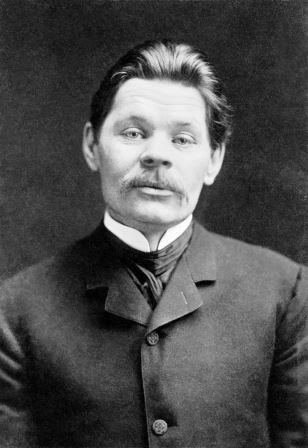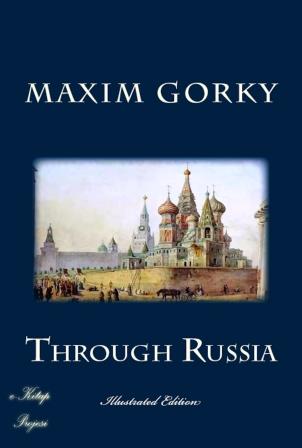More Search Results...

Alexei Maximovich Peshkov (Russian: Алексе́й Макси́мович Пешко́в or Пе́шков; 1868 – 1936), primarily known as Maxim (Maksim) Gorky (Russian: Макси́м Го́рькій or Го́рький), was a Russian and Soviet writer, a founder of the socialist realism literary method and a political activist.[3] He was also a five-time nominee for the Nobel Prize in Literature. Around fifteen years before success as a writer, he frequently changed jobs and roamed across the Russian Empire; these experiences would later influence his writing. Gorky’s most famous works were The Lower Depths (1902), Twenty-six Men and a Girl, The Song of the Stormy Petrel, The Mother, Summerfolk and Children of the Sun. He had an association with fellow Russian writers Leo Tolstoy and Anton Chekhov; Gorky would later write his memoirs on both of them.
Gorky was active with the emerging Marxist social-democratic movement. He publicly opposed the Tsarist regime, and for a time closely associated himself with Vladimir Lenin and Alexander Bogdanov’s Bolshevik wing of the party. For a significant part of his life, he was exiled from Russia and later the Soviet Union. In 1932, he returned to Russia on Joseph Stalin’s personal invitation and died there in June 1936.
Early years:
Born as Alexei Maximovich Peshkov on 28 March [O.S. 16 March] 1868, in Nizhny Novgorod, Gorky became an orphan at the age of eleven. He was brought up by his grandmother and ran away from home at the age of twelve in 1880. After an attempt at suicide in December 1887, he travelled on foot across the Russian Empire for five years, changing jobs and accumulating impressions used later in his writing.
As a journalist working for provincial newspapers, he wrote under the pseudonym Иегудиил Хламида (Jehudiel Khlamida). He began using the pseudonym “Gorky” (from горький; literally “bitter”) in 1892, while working in Tiflis for the newspaper Кавказ (The Caucasus). The name reflected his simmering anger about life in Russia and a determination to speak the bitter truth. Gorky’s first book Очерки и рассказы (Essays and Stories) in 1898 enjoyed a sensational success, and his career as a writer began. Gorky wrote incessantly, viewing literature less as an aesthetic practice (though he worked hard on style and form) than as a moral and political act that could change the world. He described the lives of people in the lowest strata and on the margins of society, revealing their hardships, humiliations, and brutalisation, but also their inward spark of humanity.
Through Russia
This Book, is a collection of short stories about Russia. Book contains many collections of short stories by the popular and influential Russian author, a founder of the socialist realism literary method and arguably the greatest Russian literary figure of the 20th century.
More info →
































